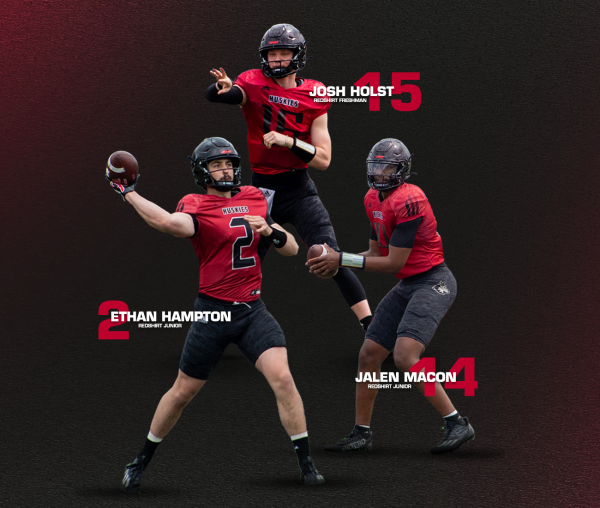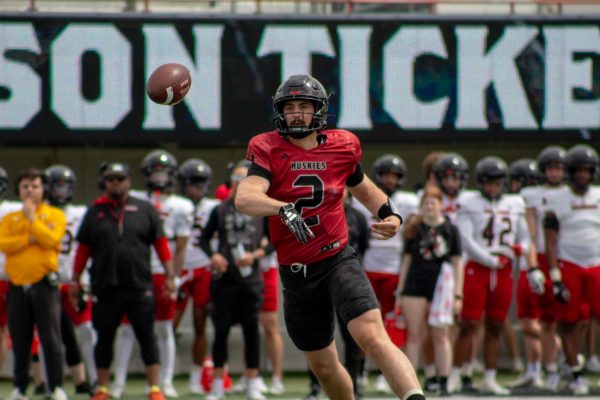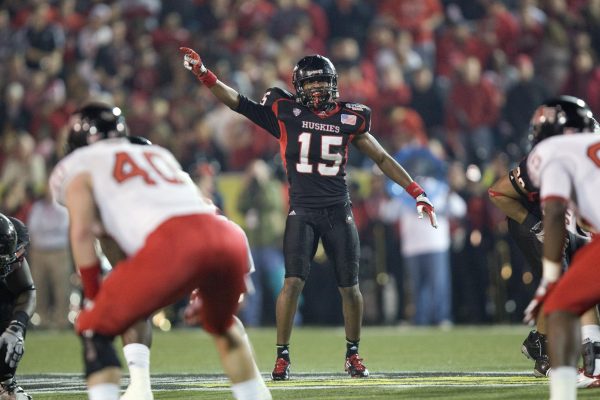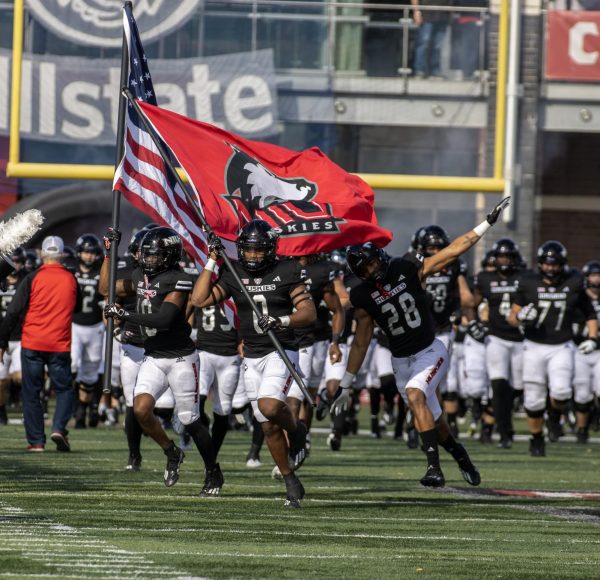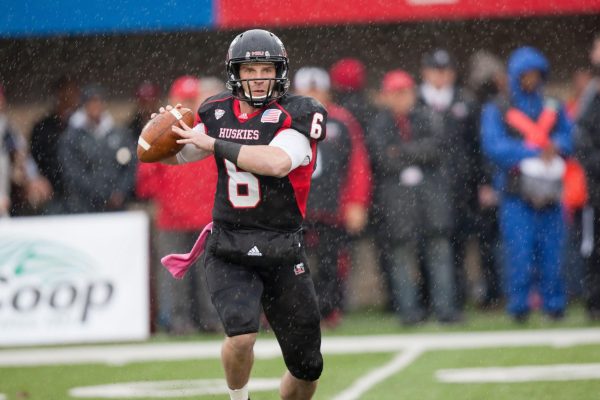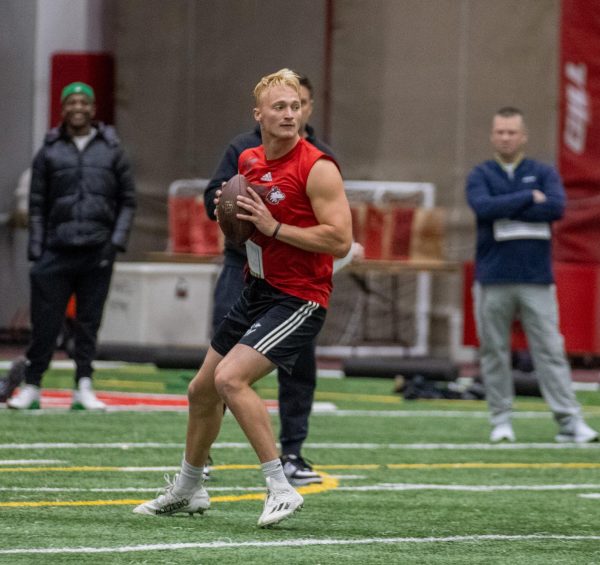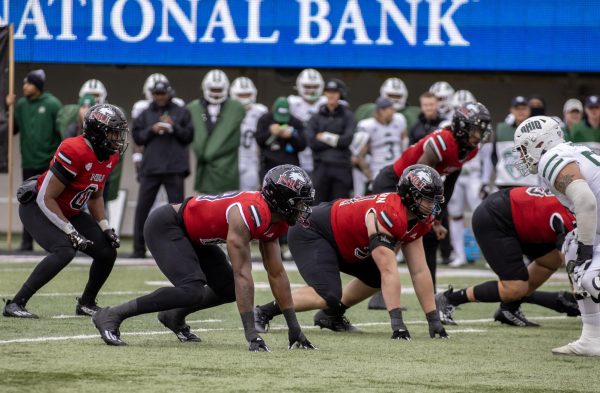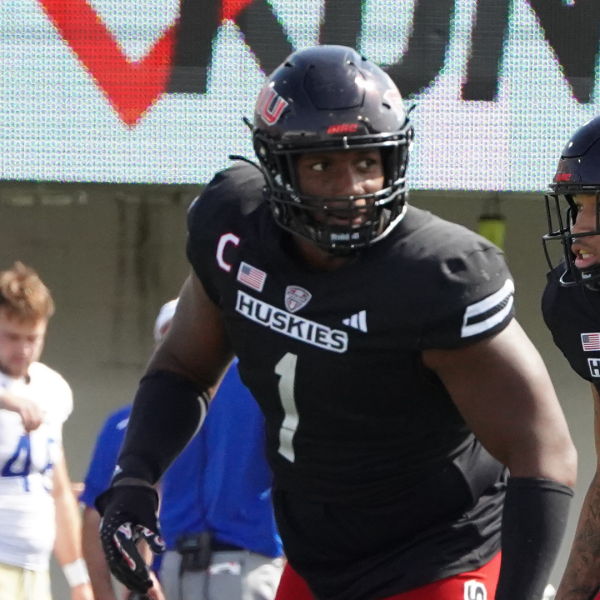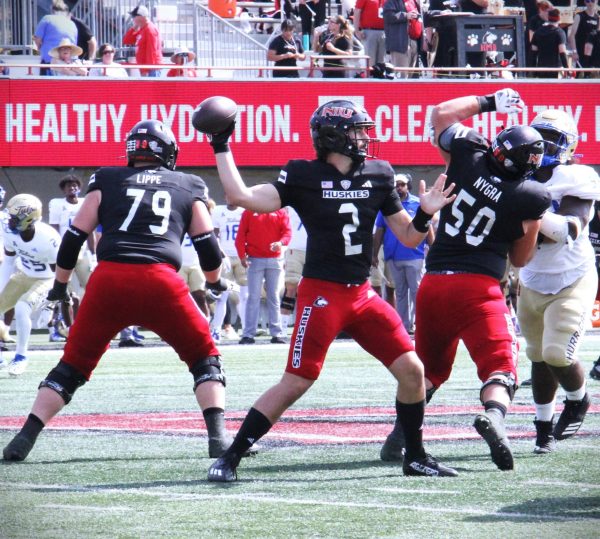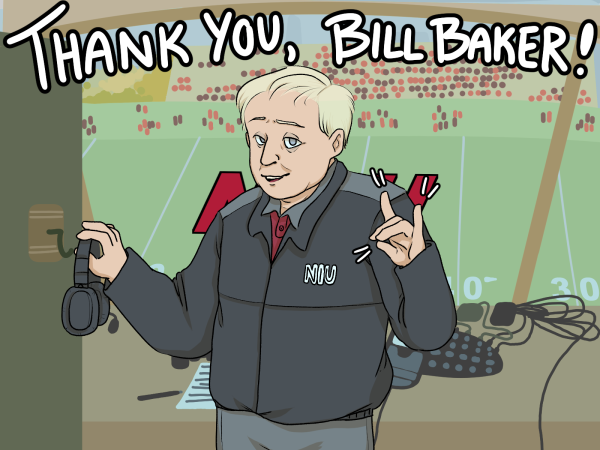Div. I soccer faster than European style
October 1, 2013
DeKalb | For men’s soccer’s European players, most not only have to transition into the new culture, but a new soccer style.
Even though soccer is played throughout the world, there is a big transition from European soccer — or football — to American soccer.
NIU has six international players on its roster, five of them from Europe, and three of them freshmen.
The three freshmen — defender Richard Hall and midfielders Chirs Bernard and Albert Levett — are from England and are still getting used to Div. I soccer.
“It is a completely different game,” Hall said. “I don’t know if that’s just because it’s the American game or the college game, but physical presence is great. The transition between defense and attack is very quick and back into defending so it’s a very quick game. Back in England it’s probably a little bit more … you get possession, you look for in’s rather than just kind of … trying to transfer the ball from defense to attack as quick as possible.”
Of the three, Bernard has played the most minutes, featuring in six games and tallying 82 minutes. Levett has started one game in two appearances, with 48 minutes under his belt, and Hall has played in three games with 41 minutes this season.
Head coach Eric Luzzi said the transition to Div. I soccer can take some time for the new European players.
“I think even guys who have played at good levels, for good teams, I think there’s generally a higher level of organization to Div. I soccer,” Luzzi said. “… Obviously if someone comes from a pro-academy that’s different, but most general club teams, their level of organization and structure is not quite as what we have here. So sometimes it can be a little bit of a jump tactically for guys.”
Another difference in the college game is the substitution rule. In Europe, once a player is substituted out of the game, that player is out of the game for good.
“In every other part of the world, their players get used to having to pace themselves for 90 minutes,” Luzzi said. “… In college soccer you can have guys play ’til they’re tired, have them run around at a high speed, come off of the field, give them a rest and send them back on and tell them to go … sprint around again. So the game is just a lot faster.”
One thing American soccer is known for is goalkeeping. The U.S. has had a number of professional goalkeepers be successful at European clubs, including the No. 1 and No. 2 goalkeepers for the U.S. men’s national team, Tim Howard and Brad Guzan.
Bernard said the goalkeepers in college soccer have the edge over the ones at home.
“Other than fast tempo, I’d have to say goalkeepers are actually much better … than back in England,” Bernard said. “The development here, it’s much better here than it is in England, anyway. Other than that soccer is quite universal really, but here it’s a much quicker tempo definitely.”
Almost halfway into the year, Bernard said he is finding his feet at NIU.
“Transition’s been really good,” Bernard said. “I’ve been really happy with it because back in England, soccer is a lot slower and you got more time on the ball, whereas here it’s a lot more fast paced. It [took] a lot of preseason for me to get a hold of it, but now I know I’m getting into the mix of it. I’m starting to get better at it and it’s coming a little bit easier.”



